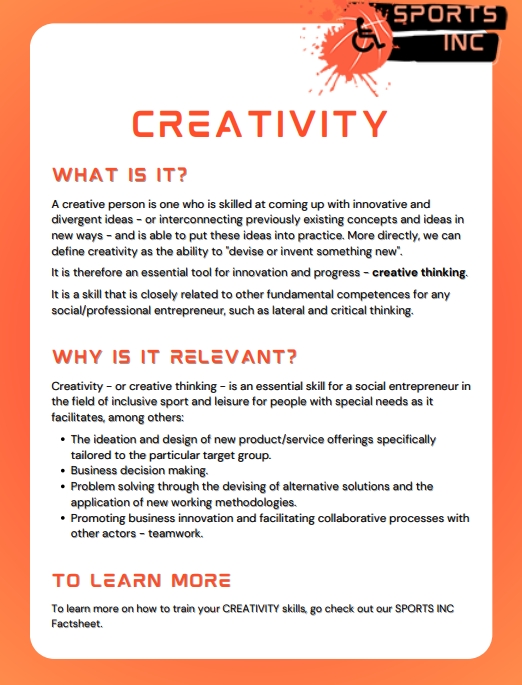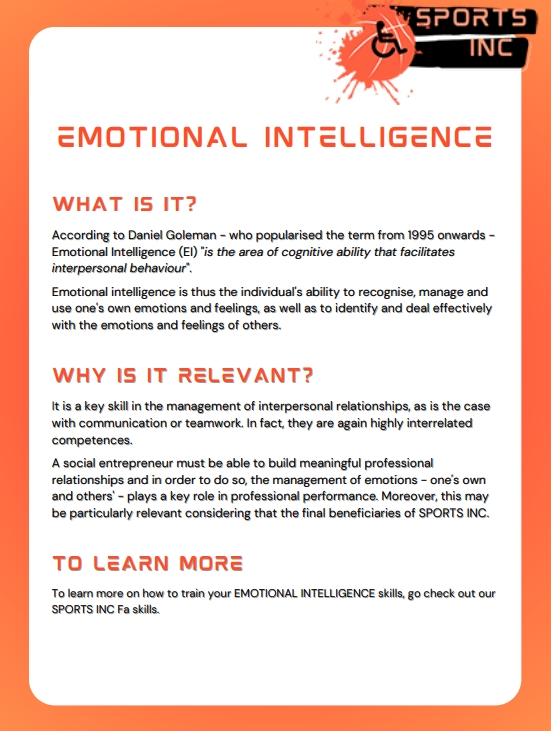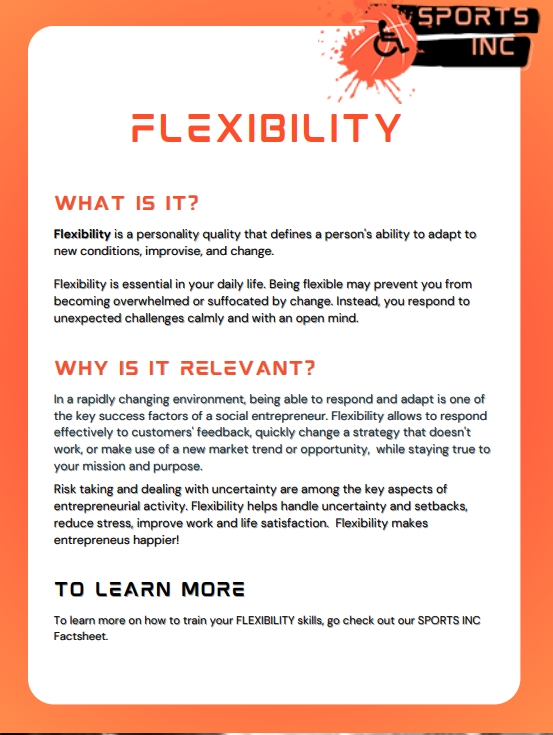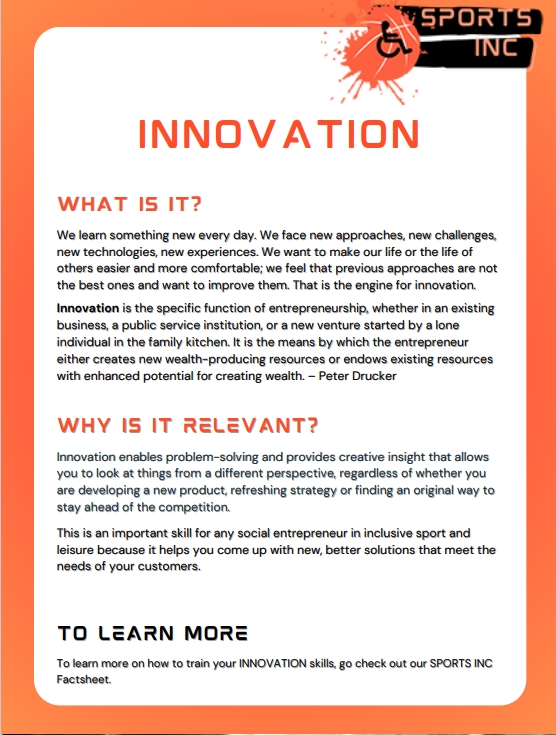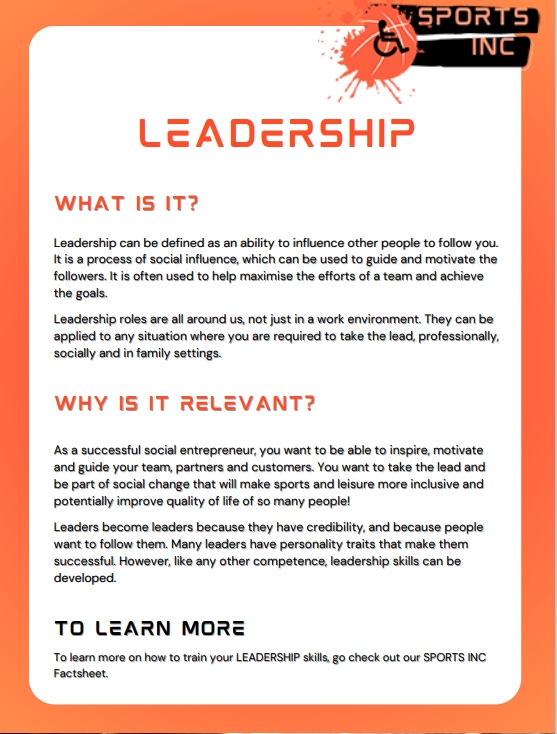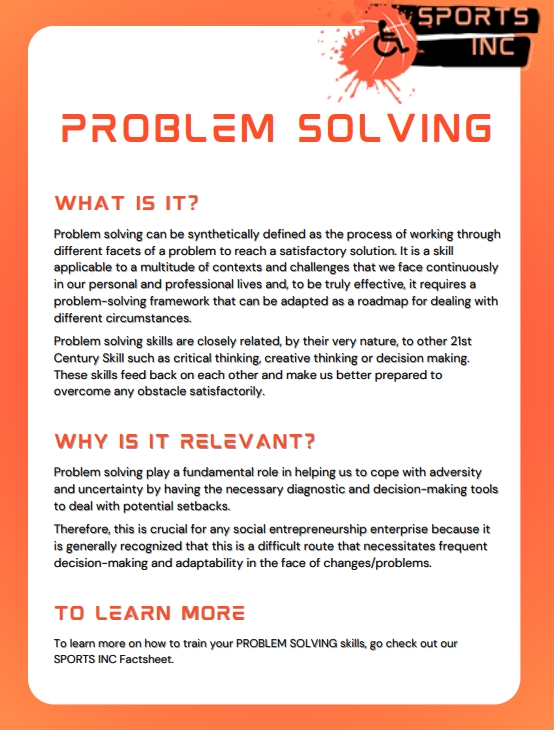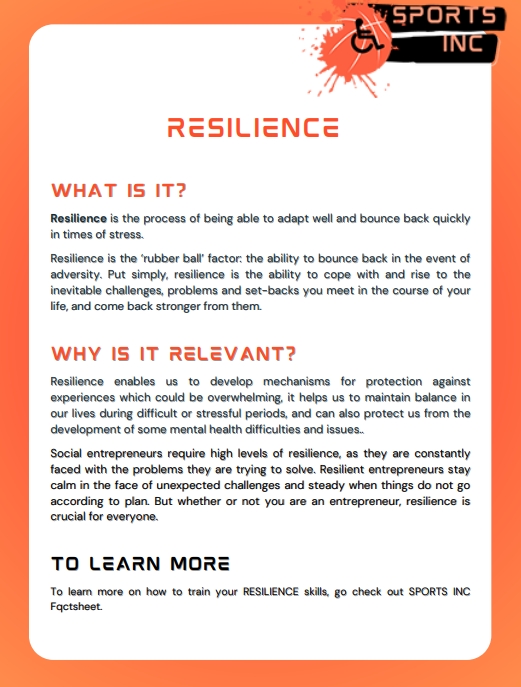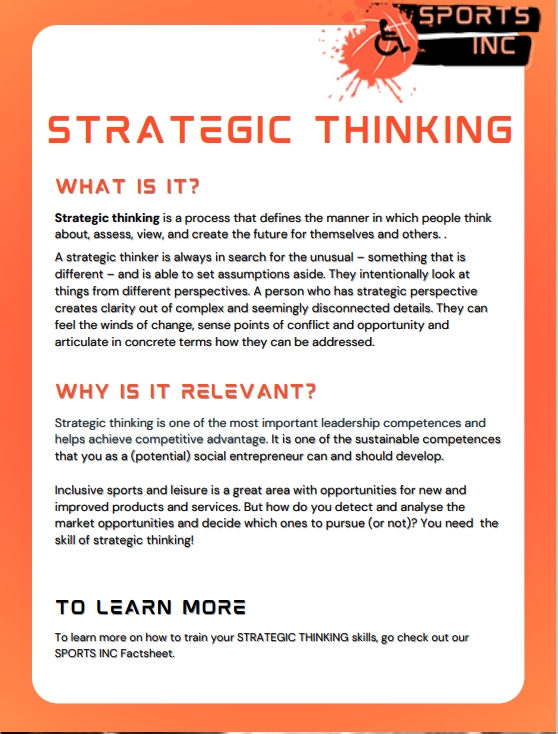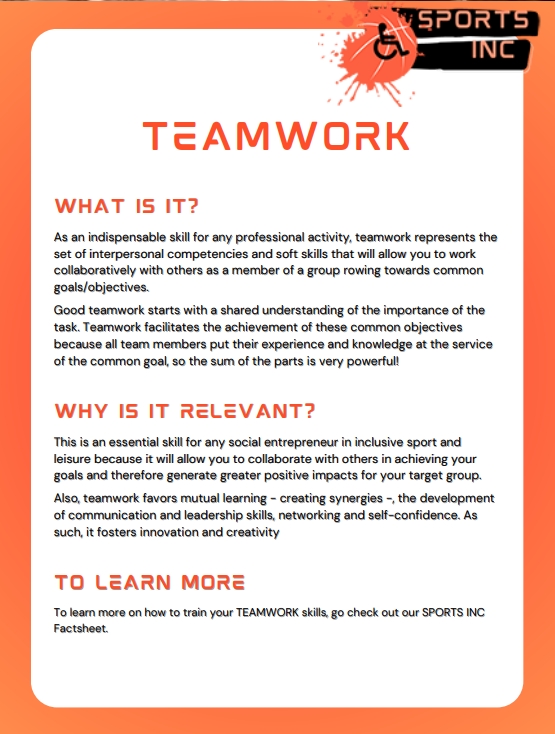COMMUNICATION
In a simplified way we can define communication as a process of exchange of information – i.e. a message – between sender and receiver(s) through a specific medium, with a meaningful purpose.
Of course, within this very simplistic definition we should consider alternatives such as the medium through which the information is transmitted: face-to-face communication – verbal or non-verbal -, information exchange in the digital environment, the intention of the communicative process (establishing relationships, selling, negotiating, making a product known, etc.).
In short, and being an essential part of social skills, communication skills allow you to make and deliver a suitable message to the receiver/audience, as well as equip you with the competences to be able to actually listen to their needs and expectations, and use that data for decision making.
What is unquestionable is that communication is key in our daily lives and we have plenty of opportunities to test our own skills and, therefore, to assess potential areas for improvement and get down to work!
For example, did you know that in a face-to-face communication process 65% of communication is non-verbal? Do you know what your body posture or tone of voice conveys at any given moment? Or, on the other hand, do you think you have mastered the different types of communication and know how to adapt them correctly to your interlocutors?
As you can imagine, social entrepreneurship will require the application of good communication skills as part of your daily activity.
COMMUNICATION SKILLS
Some of the most relevant communication skills that will play a key role in your role as a (prospective) social entrepreneur in dealing with stakeholders and communicating your message are, among others:
- Verbal Communication
- Non-verbal Communication
- Active Listening
- Public Speech
- Empathy – Also, you can learn more about Emotional Intelligence in our factsheet on the topic!
- Storytelling & Persuasive presentation skills
- Written Communication
- Digital Communication
For example, think about how these skills would be key for you in the following situations:
- How to manage and make the most of group ideation dynamics in which different profiles collaborate with the common goal of identifying a business opportunity that is really relevant for your target group.
- Communicating the launch of a new product/service specifically for people with special needs at a regional fair.
- The negotiation process you will have to establish with some suppliers when starting up your business.
- Networking opportunities
We recommend you to have a look at the following video in case you want to learn more on communication skills that might play a major role in your professional development as an entrepreneur: What Are Communication Skills? Top 10!
BENEFITS
- Being a good communicator will allow you to build and manage professional (and personal) relationships that are more satisfactory for both parties. Therefore, it will also be a key tool for networking and collaboration processes with other actors.
- In the same sense, communication facilitates teamwork and peer-learning. Likewise, it is essential in negotiation and conflict resolution processes.
- On the other hand, knowing different types of communication and how to apply them will help you to deliver messages more effectively and efficiently for your business, thus contributing to the success of your (future) social enterprise. In this sense, some of the objectives you will need to be adept at are, among others:
- Persuasive communication aimed at selling
- Active listening to receive feedback and learn from your target group and their needs, as well as from other experienced professionals in the sector.
- Public speaking to promote your business idea and raise funding when needed (e.g. business pitch)
- Online communication to manage your professional presence on social media, with the particularities of the online environment – netiquette, emojis, SEO/SEM, etc.
- An effective leader must have strong communication skills. The finest means of empowering others is through communication, which is what leaders do best.
HOW TO BOOST YOUR COMMUNICATION SKILLS
Now that you have an idea of the importance of using good communication skills in different work situations, and now that you have a better understanding of basic concepts, here is a small strategic roadmap that you can use in order to analyse and strengthen your communication skills as a (prospective) social entrepreneur in the field of sports and inclusive leisure for people with special needs:
- To begin with, spend some quality time assessing your own communication skills today. You can help yourself with resources such as the following:
- Identify your strengths in interacting with others and identify areas of improvement where you want to invest efforts to improve.
- Practice! Take every opportunity to test your new skills and competences and evaluate your progress.
- We advise you to start by practising those communication skills that you consider to be your weak points.
- Ask for feedback from colleagues, professionals, family members, clients, etc. and use constructive criticism to design your action plans.
- Communicate with purpose on a regular basis and, if necessary, set goals on a regular basis to keep your motivation levels stable.
- Always try to adapt your message to the circumstances of the communication. To do so, at least take into account the following particularities:
- Who is your audience?
- What do you want to achieve through this specific communication process? Think strategically!
- If the communication is face-to-face or digital
- If face-to-face, the observable elements of verbal and non-verbal communication
- When speaking in public, observe the following:
- Your body language and that of your audience
- Apply storytelling tools to capture the audience’s attention and don’t forget to adapt your message to the audience you are addressing.
- Admit your vulnerabilities and always speak honestly.
- Don’t stop practising! Every opportunity to test yourself is a valuable learning opportunity.
ADDITIONAL RESOURCES
- What is Communication Process? definition and meaning – Business Jargons
- The psychology of communicating effectively in a digital world | Helen Morris-Brown | TEDxSquareMile
- It’s Not Manipulation, It’s Strategic Communication | Keisha Brewer | TEDxGeorgetown
- https://chaord.eu/
- The 110 techniques of communication and public speaking | David JP Phillips | TEDxZagreb
- 5 Essential Tips For Business Storytelling


